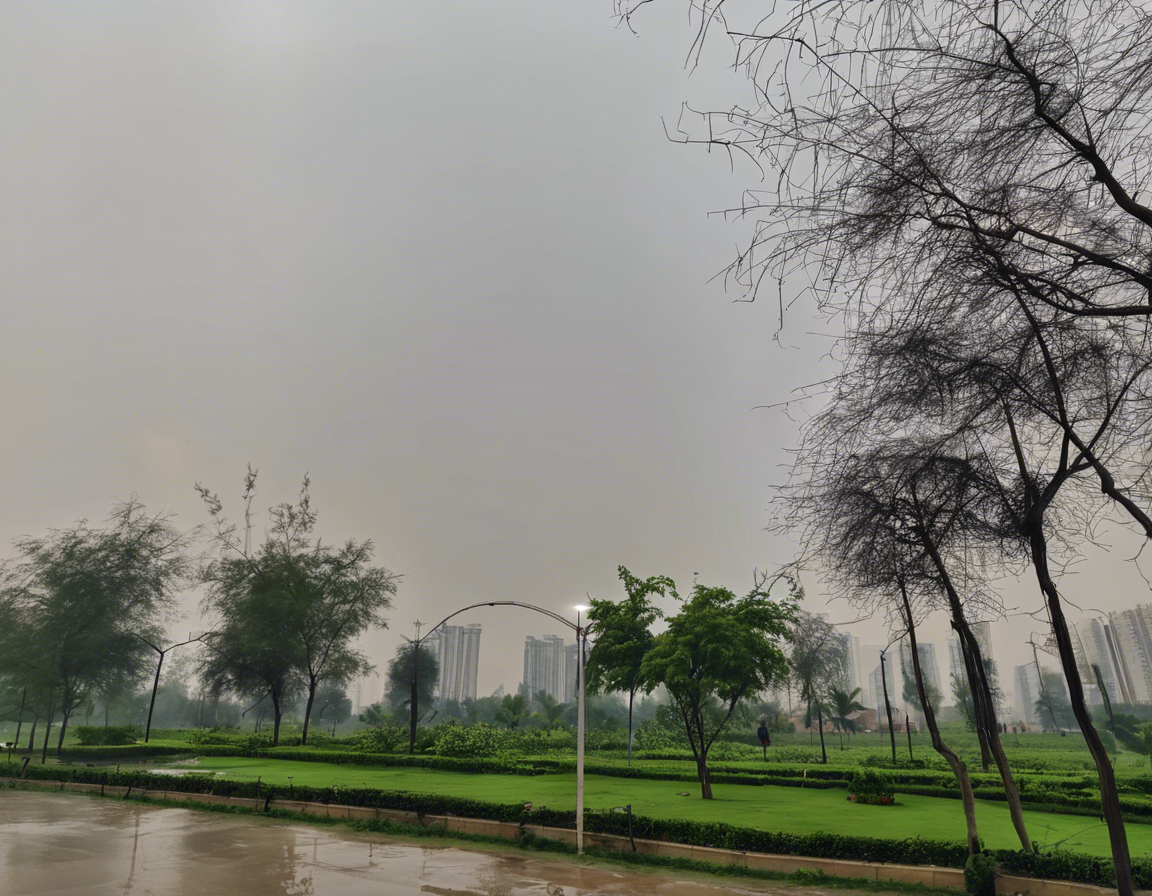Introduction
Noida, a bustling city in the northern part of India, is known for its rapid urbanization and diverse culture. One crucial aspect that greatly impacts the daily life of Noida’s residents and visitors is the weather. Understanding what to expect in terms of weather conditions can help individuals better plan their activities and make informed decisions. In this article, we will delve into the Noida weather patterns, providing an overview of the different seasons, temperatures, precipitation, and other key factors that influence the climate in this vibrant city.
Noida Weather Seasons
Noida experiences three primary seasons: summer, monsoon, and winter. Each season brings its unique set of weather conditions and characteristics.
1. Summer (March to June)
– Temperature: Summer in Noida can be scorching, with temperatures soaring as high as 45°C.
– Humidity: High levels of humidity can make the heat feel more intense.
– Activities: Many residents prefer indoor activities during the hottest part of the day to avoid the peak heat.
2. Monsoon (July to September)
– Rainfall: Noida receives the majority of its annual rainfall during the monsoon season.
– Temperature: The rain provides relief from the summer heat, with temperatures ranging from 25°C to 35°C.
– Flooding: Heavy rainfall can sometimes lead to localized flooding in low-lying areas.
3. Winter (October to February)
– Temperature: Winter in Noida is characterized by cool and pleasant weather, with temperatures ranging from 5°C to 20°C.
– Fog: Dense fog can occasionally disrupt transportation and visibility during the winter months.
– Festivals: The winter season coincides with various festivals, making it a popular time for cultural celebrations.
Factors Influencing Noida Weather
Several factors impact the weather patterns in Noida, including:
1. Geography: Noida’s proximity to the Himalayas influences its climate, with the mountains acting as a barrier to cold winds in winter and influencing the monsoon currents in summer.
2. Urbanization: The rapid urban development in Noida has led to the urban heat island effect, where concrete structures and roads retain heat, resulting in higher temperatures compared to surrounding rural areas.
3. Air Quality: Noida’s air quality can also impact weather conditions, particularly during the winter months when pollution levels tend to peak, leading to reduced visibility and health concerns.
Weather Tips for Noida
To navigate the diverse weather conditions in Noida, consider the following tips:
- Stay Hydrated: Given the high temperatures during summer, staying hydrated is essential to prevent dehydration.
- Dress Accordingly: Wear light and breathable clothing in summer and layer up during the winter months to stay warm.
- Monitor Air Quality: Keep track of air quality reports, especially during winter when pollution levels can be higher.
- Plan Outdoor Activities: Schedule outdoor activities during the cooler parts of the day to avoid extreme heat.
- Check Weather Forecasts: Stay informed about upcoming weather conditions to plan your outings effectively.
Frequently Asked Questions (FAQs)
1. What is the best time to visit Noida in terms of weather?
– The winter months from October to February are generally considered the best time to visit Noida due to the pleasant weather conditions.
2. Does Noida experience extreme weather events like cyclones or tornadoes?
– Noida is not prone to cyclones or tornadoes, but it can experience heavy rainfall and thunderstorms during the monsoon season.
3. How can I prepare for Noida’s summer heat?
– To combat the summer heat in Noida, drink plenty of water, use sunscreen, and opt for lightweight, breathable clothing.
4. Are there any weather-related precautions I should take during the monsoon season in Noida?
– During the monsoon season, it is advisable to carry an umbrella or raincoat, avoid waterlogged areas, and stay updated on weather alerts.
5. What are the typical humidity levels in Noida?
– Noida experiences high humidity levels, especially during the summer months, which can make the heat feel more intense.
In conclusion, understanding Noida’s weather patterns is crucial for individuals looking to live in or visit this dynamic city. By being informed about the seasonal variations, temperature ranges, and key weather factors, individuals can better prepare for the diverse weather conditions they may encounter in Noida. Whether bracing for the summer heat, enjoying the monsoon showers, or embracing the winter chill, being weather-wise in Noida is the first step towards a comfortable and enjoyable stay in this bustling urban hub.
